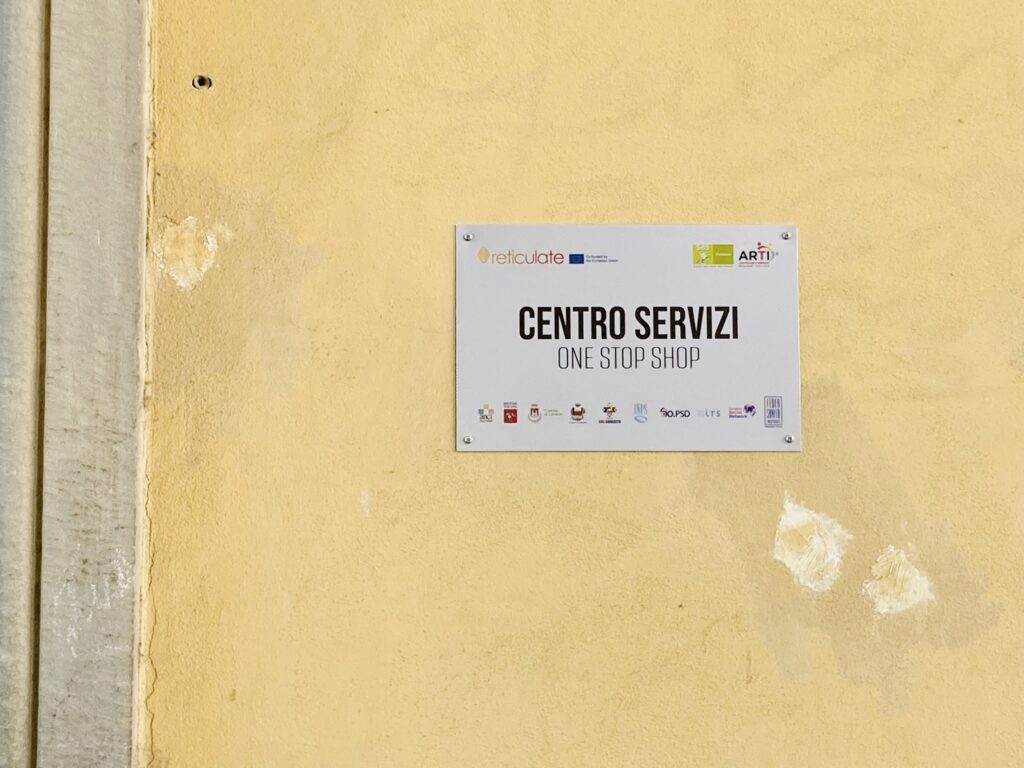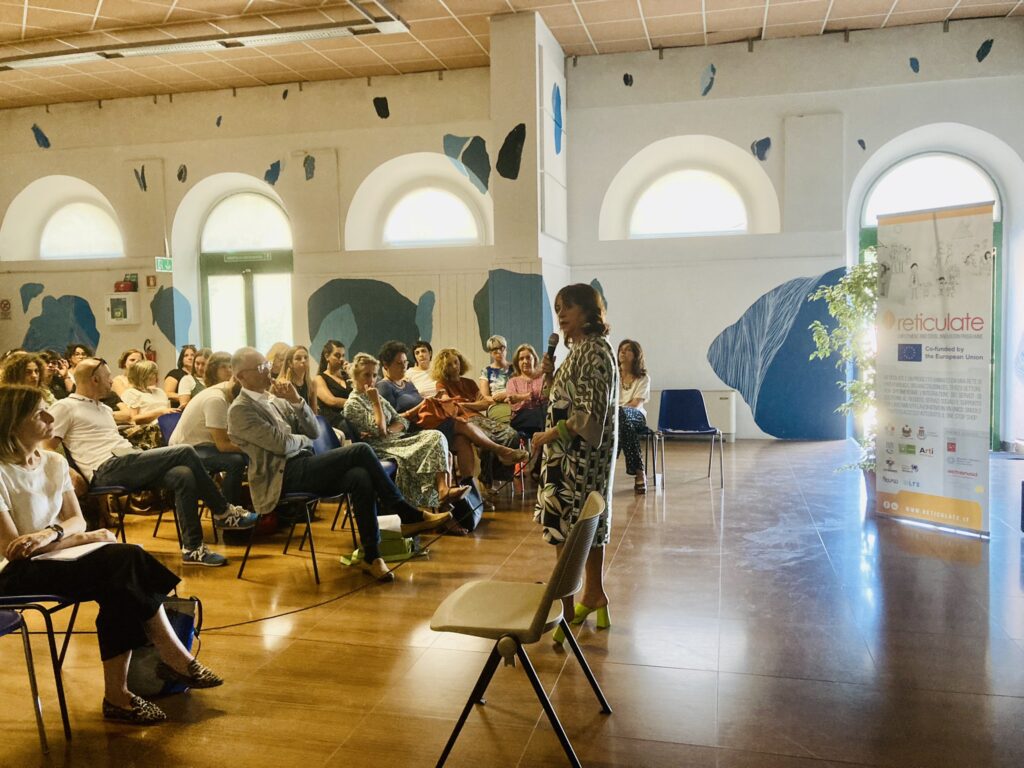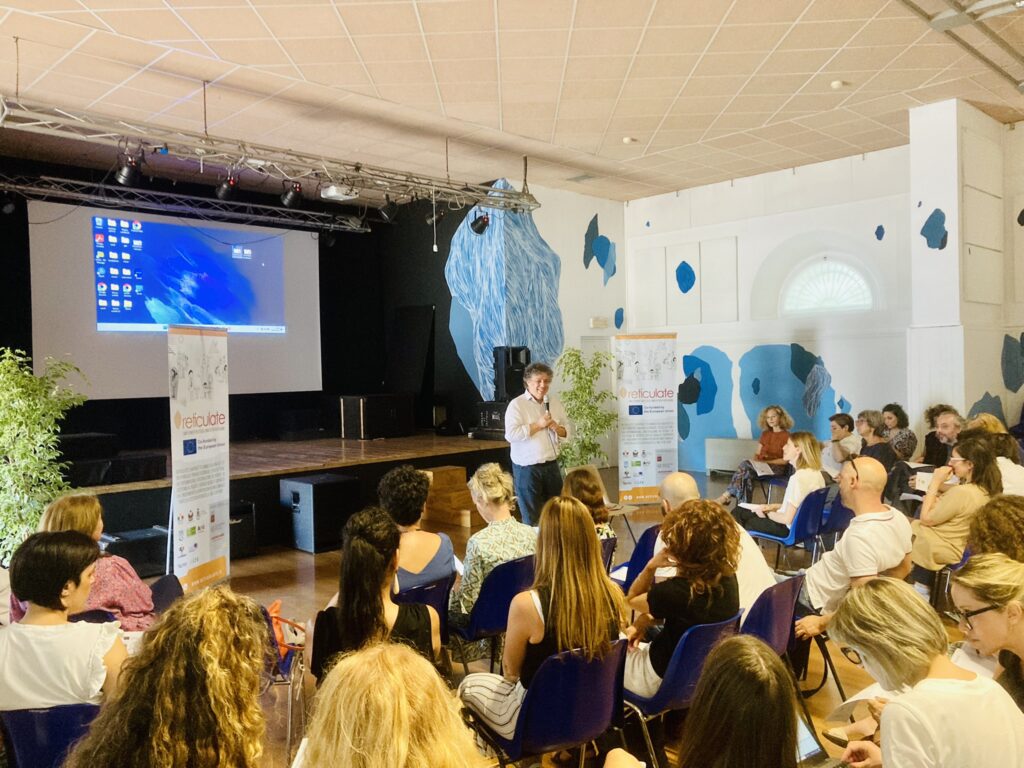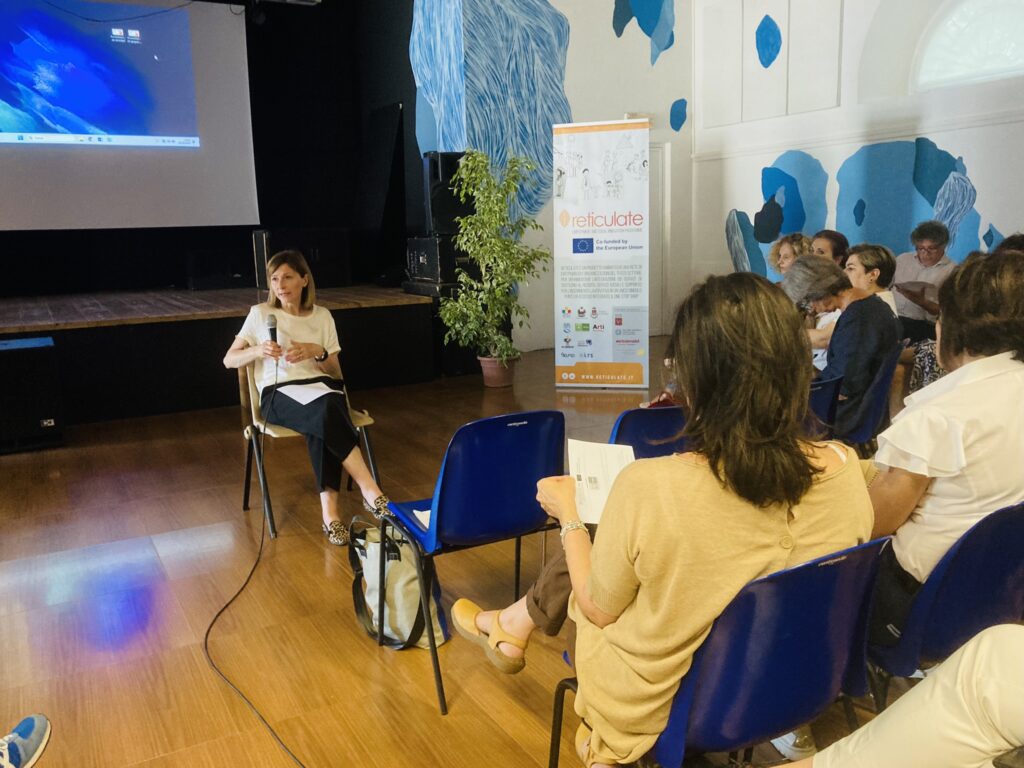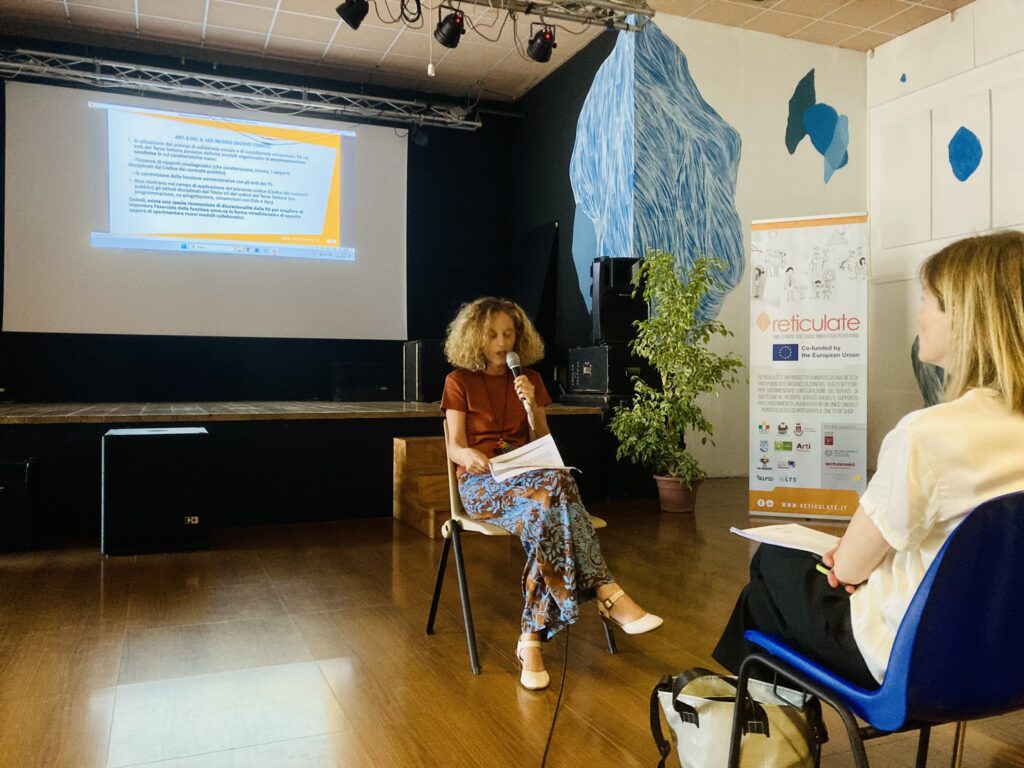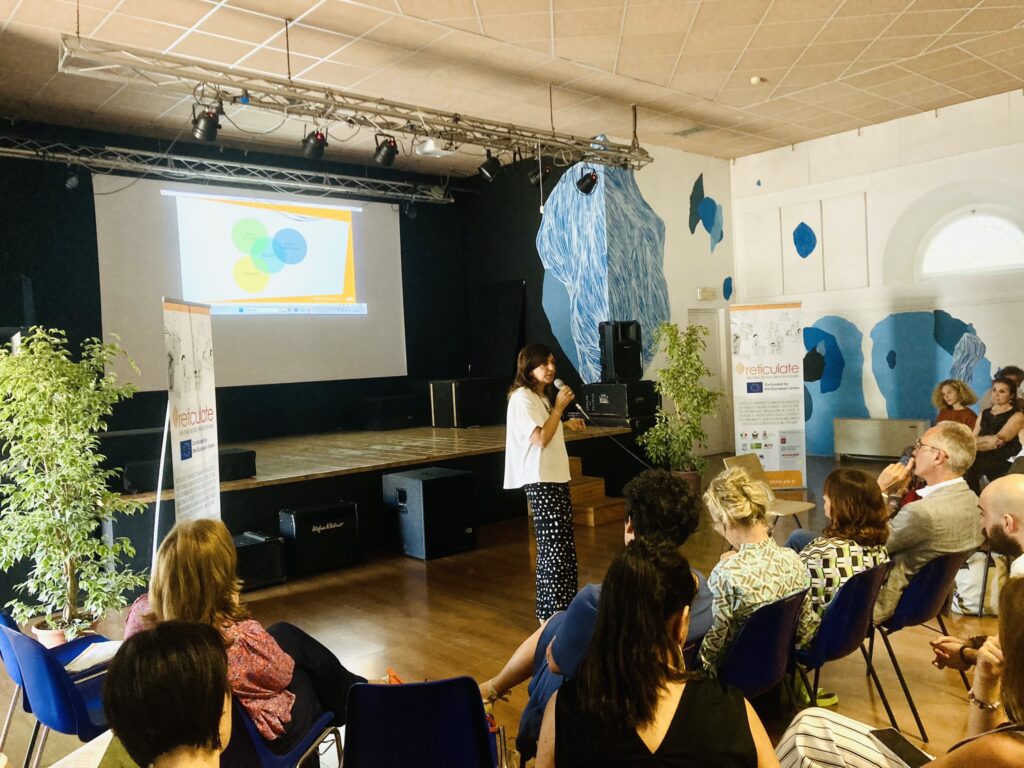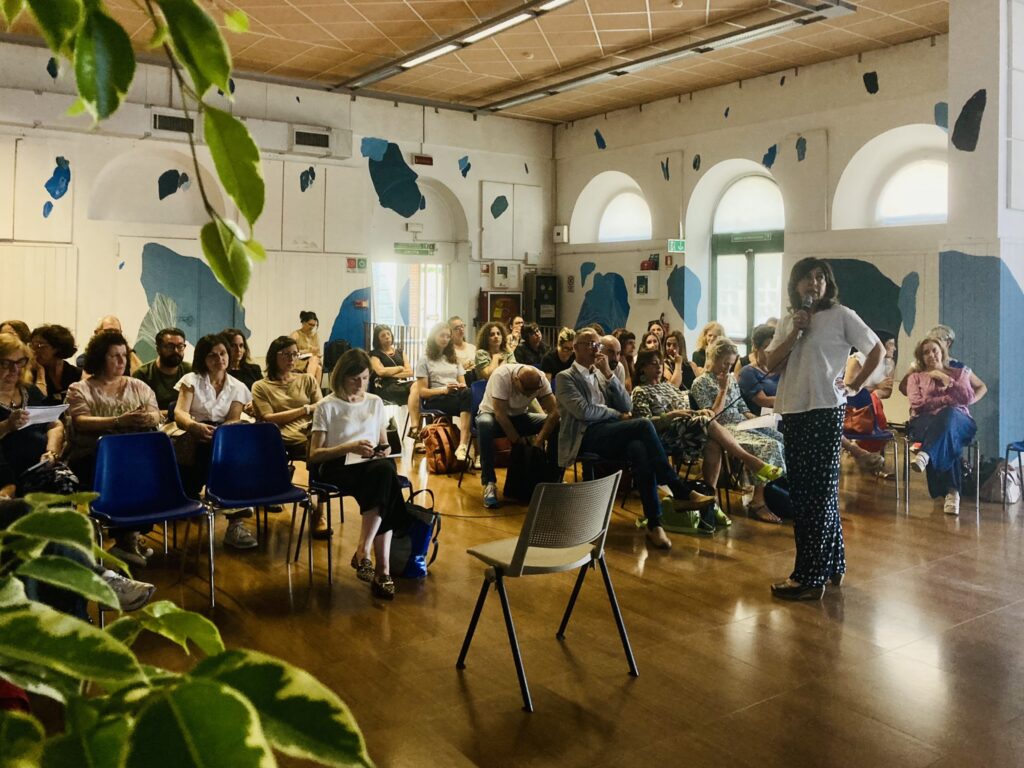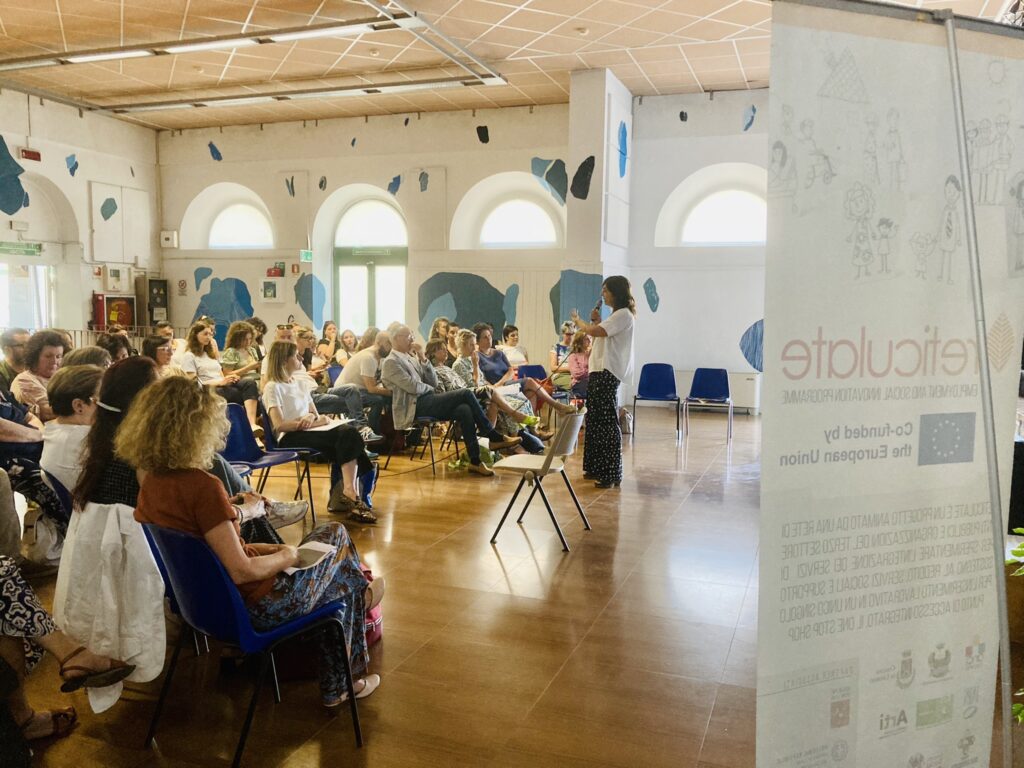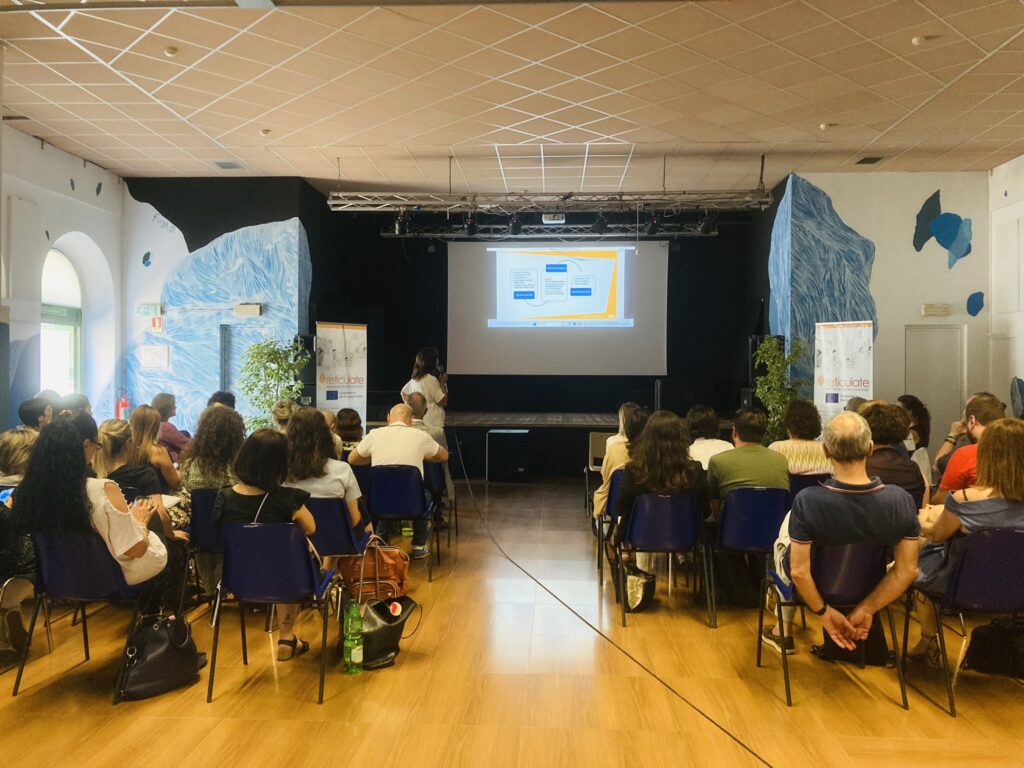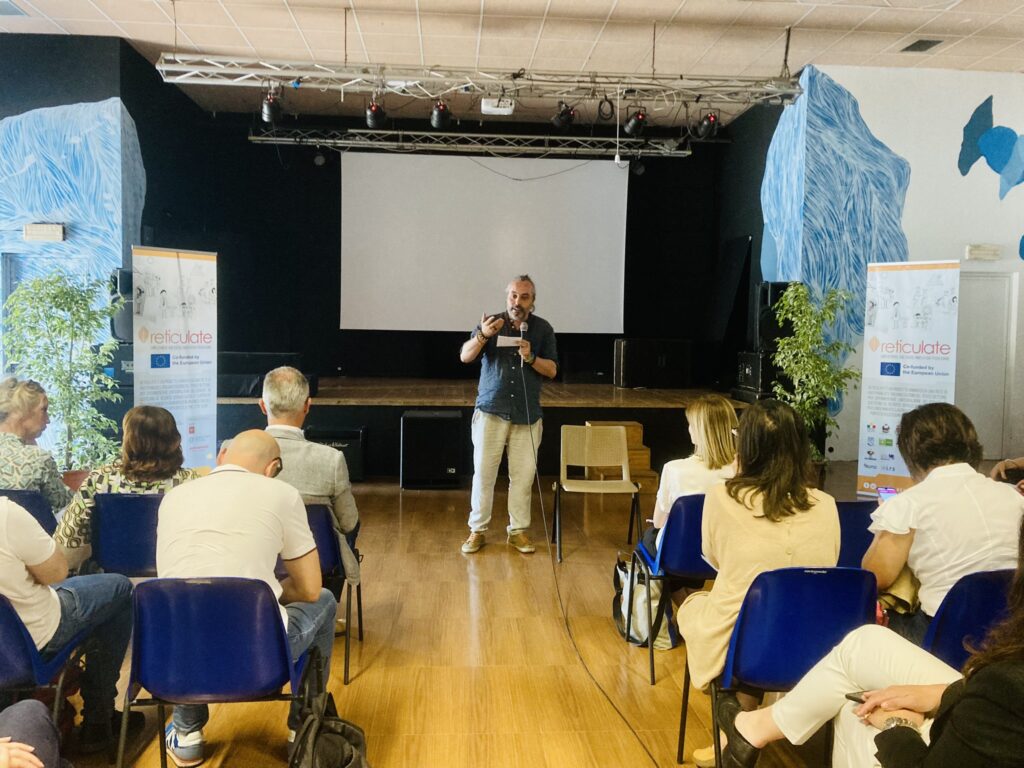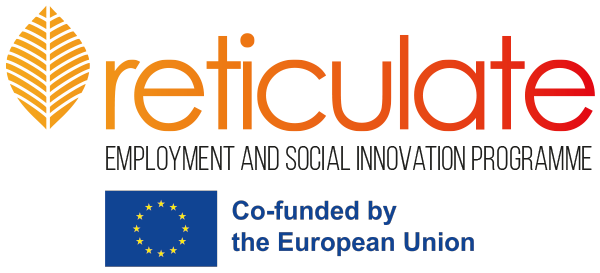
05 Jul Local presentation seminar of the One Stop Shop in Pistoia
A meeting was held last Monday 26 June 2023 in Pistoia, at the Melos centre, to share the experience of the One Stop Shop – Centro Servizi, launched as part of the activities relating to the Reticulate project.
The meeting was animated by Andrea De Conno of Anci Toscana – Federsanità, project leader, who introduced the experience of the One Stop Shop (OSS) as a physical place where people can have access to services in an integrated way. It is therefore a single access door that meets the “livelli essenziali delle prestazioni” (basic and essential services that should be guaranteed in a uniform manner at national level, according to art. 117 Italian Constitution). Furthermore, the OSS responds to the need to guarantee the expression of citizenship rights, as well as the more general access to basic services, as indicated in article 3 of the Constitution. Andrea De Conno thus opened the meeting, which saw the participation of many protagonists in this important experimentation, where the concepts of integration and proximity become essential elements for building an inclusive community.
Romina Nanni, Manager in ARTI – Regional Employment Agency and head of employment services in the Lucca and Pistoia area underlined the urgency of integrating services, also in the light of the reforms in progress relating to basic income and with a view to structuring an integration of services that has already begun on an experimental basis some time ago.
Marta Tempestini, from the Municipality of Pistoia, Social Policies area and active member of the Reticulate team, intervened to frame the co-design tool starting from which the objectives on which to work were identified in the context of the activities that allow to structure the One Stop Shop. As regards the general objectives, the following have been defined:
- Coordination of the local services network (public and Third Sector);
- Strengthening of multidisciplinary teams
In relation to the specific objectives: - The establishment of a permanent inclusion – marginality table, which should lead to the definition of a Network Agreement to give value to the synergies between public and private
- The ability to guarantee the offer of a series of services (e.g. tutoring, legal advice, etc.)
- The structuring of the One Stop Shops.
Francesca Meoni, Inclusion area of the Co&So Consortium, deepened the realization of the various objectives identified in the co-planning table while Gilda Corsini, social worker of the Municipality of Pistoia and contact person for the coordination of the activities relating to the trials in the 4 territories of Tuscany, placed emphasis on the strategic role of multidisciplinary teams, i.e. an active collaboration between various professional figures such as the operator of the employment centre, the social worker, the educator, the tutor and the network manager, which guarantees the connection between the team and the co-planning network, for the purpose of a correct multidimensional assessment of the person in charge in terms of economic and employment situation, level of education, housing conditions, family and social support network, needs in terms of health and care and education/training.
Alberto Zinanni, introduced in the presentation by Gilda Corsini, who covers, among others, the figure of network manager between the team and the subjects involved in the co-design, highlighted the strategic support role of experts for the construction of the participatory tables that they will have to lead to the definition of a Network Agreement which will have to structure the collaboration between public and private entities beyond the duration of the project.
The works concluded with speeches by the new director of the “Società della Salute di Pistoia” (Local Health Care Public Company) and by Anna Maria Ida Celesti, doctor, President of the Pistoia Health Society, deputy mayor of Pistoia and Anci Toscana responsible for welfare, who he underlined how a health service works if the person is also taken care of socially, with a view to strengthening a welfare state that is “community”.
